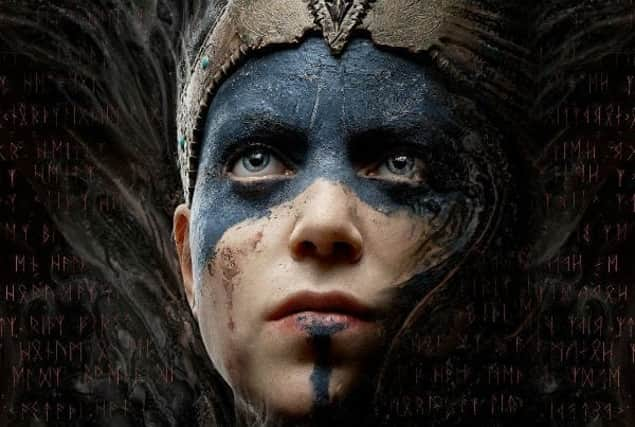Video games have become far more than mindless entertainment


If there was any doubt that video games are capable of tackling difficult, mature and thought-provoking subject matter with increasing confidence, last night's BAFTA Games Awards surely dispelled it.
Mario, Call Of Duty and other bombastic household names may have been in the running. But it was some of the previous 12 months' most hard-hitting and emotional experiences that pipped them to the biggest prizes.
Advertisement
Hide AdAdvertisement
Hide AdHosted by comedian Dara O’Briain in London, the 2018 ceremony reserved top honours for What Remains of Edith Finch, a powerful narrative adventure about the many personal tragedies of an eccentric American family, and Hellblade: Senua's Sacrifice, which explores its protagonist's battle with mental health issues.


Edith Finch took the BAFTA for Best Game, while Hellblade won five awards including Artistic Achievement, British Game, and Performer for actress Melina Juergens.
Both titles have been commercial hits as well as critical ones, underlining the increasing prominence and importance of virtual experiences that go far beyond mere surface level thrills.
'Difficult and important subjects'
Those following the growing trend for hard-hitting, emotional and story-driven games will know that the medium has long been coming of age when it comes to thematic maturity.


But it has, perhaps, been a watershed year for such titles.
Advertisement
Hide AdHellblade, self-published by developers Ninja Theory but boasting Triple A blockbuster credentials (the studio's previous projects include Heavenly Sword and DMC: Devil May Cry), applied a deep, raw thematic punch to a third person hack and slash formula. This was a major action release, but not as we knew it.
Advertisement
Hide AdHellblade has been widely praised for its approach to mental illness, with its main character dealing with the trauma of her past.
Many gamers have spoken of its power in communicating and exploring the mental health struggles that people go through.


"We started to get emails from people who suffer," explained chief creative director Tameem Antoniades. "They felt like just having something out there that they could look at from the outside in was a cathartic experience. And they used the game as a way to explain to loved ones, partners...to give them an idea of what they're going through."
Advertisement
Hide AdMelina Juergens, who won the Performance award for her portrayal of Senua, spoke after the ceremony about tackling a "difficult and important subject".
"I tried to think of my own real-life situations that I've been through and try to get out these emotions...when I'm crying in Hellblade I'm actually crying."
Advertisement
Hide AdDeath, grief and the power of stories


Giant Sparrow's Best Game winner Edith Finch also deals with mental illness, from the heartbreaking tale of a lonely shut-away, to an astonishing segment in a cannery, where a character escapes into a fantasy world to escape his day to day drudgery. Putting the player in the shoes of these individuals drives empathy and understanding. It would be an understatement to say the pay off is profound.
In addition, Edith Finch explores death, grief and the power of stories in a saga that takes in spellbinding dream sequences and the most haunting (yet contrastingly joyful) child's bathtime imaginable, imbuing its assorted tales with a real sense of pathos.
Advertisement
Hide AdNight In The Woods is a wonderful, charming insight into a host of societal issues
Elsewhere, charming 2D adventure Night In The Woods - which won the Narrative award - taps into a well of small town stagnation and youthful angst; its gorgeous art-style and witty humour marrying with an all too relevant commentary on recession, alienation and being bound by the past. It perfectly nails what it feels like as a young person to return to your familiar yet stifling hometown, several years after leaving.
Life Is Strange: Before The Storm, Tacoma and The Sexy Brutale (underneath its quirky murder mystery puzzling) are all fellow BAFTA nominees to plough complicated territory and themes.
Advertisement
Hide AdEven Wolfenstein II: The New Colossus deals with some challenging subjects and deep emotions, despite being - on paper - a brash, visceral and somewhat ludicrous first-person shooter. It was also nominated in the Narrative category.
Advertisement
Hide AdNo longer on the margins
It's telling that BAFTA felt the need to introduce a category called 'Game Beyond Entertainment' this year, in order to cater to a growing swell of games that go far beyond 'mindless' fun and spectacle.
As they explained in October 2017, this is largely a response to the likes of dystopian border check simulator Papers Please, teen mystery-drama Life Is Strange and the unbelievably hard-hitting That Dragon, Cancer.
But perhaps such clarification and distinction is unnecessary.
Not niche: Hellblade combined exhilarating action with a thoughtful story (Photo: Ninja Theory)
Advertisement
Hide AdAdvertisement
Hide AdHellblade, which also claimed the 'Game Beyond Entertainment' title as it happens, demonstrated games can be thought-provoking and powerful while still boasting thrilling, exhilarating action. Edith Finch showed they can be deeply poignant and sorrowful, while also being spellbinding, charming and sometimes funny (the Halloween segment, anyone?).
The lines between mainstream entertainment games and alternative, arthouse games are blurring. Games that explore the complex and the challenging are now popular as well as acclaimed.
As Hellblade's director Tameem Antoniades put it: "We thought we were making something very niche. But it turns out it's not niche."